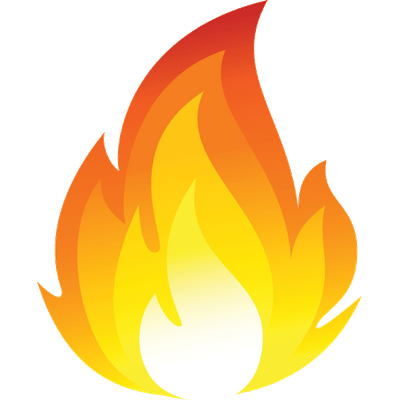-
Posts
12,043 -
Joined
-
Last visited
Content Type
Profiles
Huddle Wiki
Forums
Gallery
Everything posted by 45catfan
-

Wentz update: Trade is close, with three teams involved
45catfan replied to Mr. Scot's topic in Carolina Panthers
Please, please, please...... The only team my gut says will actually be ballsy enough to jump way up in the draft ahead of us if they can't land a new QB via trade. -

Wentz update: Trade is close, with three teams involved
45catfan replied to Mr. Scot's topic in Carolina Panthers
Is Trubisky involved if it's the Bears? Remember he's not officially a FA until free agency opens. -
While I'm at it, they also say we re-sign Okung to an average $16.6M/year deal and Samuel signs elsewhere for $8.3M/year. Those were our top FAs. PFFs top 150 FAs
-
Who would pay Moton $16.5M average salary a year? That's what is PFF is projecting (speculating) him to get. As for me? Nope, it was nice knowing ya!
-
Again, if everyone sits tight with their current QB. With the inflated QB market right now, it's very possible. That said, if guys aren't moved, I don't see the Jets, Falcons, Eagles or Lions drafting a QB. At most one and that would be the Jets as an insurance plan for Darnold.
-
Ultimately I hope the asking price to move these guys gets so ludicrous that everyone decides it's best just to stick with current QB, at least for this year. Who does that help in the draft? The Panthers. If the draft order stays as is, we should be a lock to pick one of the 'big 4' without having to move up ourselves.
-
Both the no-names and Colts lack the draft pick firepower to move ahead of us without giving up 2022's first, second and some mid-round pick too. That would be CRAZY.
-
I get that part, but I meant playing with a tag. He's obviously priority #1 out of the gate, so the condensed timeline is of little consequence. I think we only tag him if there's an contract stalemate and he's asking for more than the Panthers are willing to pay. Granted the whole 'dance' involved takes a little time, but this is an OL contract, not a skill player. It should be fairly straight forward and could be hammered out in short order if the two sides are not far off in their numbers.
-
Now we're thinking alike...very shrewdly.
-
Fair enough, I was merely suggesting it could be an option, but what is the benefit to tagging him and dragging out the negotiations? We don't have the cap space to find better alternative in FA and if I'm getting an OT in the draft, it's a LT. To your point if Moton isn't cut out for LT, would it make sense to draft his replacement and let him walk in 2022? Just thinking out loud here.
-
Ah, so Moton was the rumored hesitant one, not Hurney. Okay, that makes sense. While Hurney may have been dragging his feet, if he were still here, I have little doubt that Moton would have gotten a new deal...probably over-priced to boot.
-
Huh? I thought Hurney re-signed everything that had a pulse.
-
I think we sign him outright. If we tag him and he has a stellar season, it's only going to drive up his price. Especially if we move him to the left side. Currently, we can sign him to RT money or swing tackle money, both of which are cheaper than LT money.
-
We can afford a couple of fairly lucrative extensions/re-signs, but that's all. Moton obviously and one other.
-

Wow...Panther’s social pretty honest about Teddy.
45catfan replied to Tbe's topic in Carolina Panthers
His contract money isn't for a 'wallflower leader' and just 'good' production. -

Wow...Panther’s social pretty honest about Teddy.
45catfan replied to Tbe's topic in Carolina Panthers
Heck, DJ is losing out in the Anderson conversation too, remember he still needs to be re-signed. It's like Robbie is a lock to get a new deal (for some odd reason) and Curtis...to a lesser extent Moore, are expendable. -

Wow...Panther’s social pretty honest about Teddy.
45catfan replied to Tbe's topic in Carolina Panthers
Are you the least bit surprises? I'm not. Shaq was never going to be Luke or TD's heir apparent no matter how much Hurney wished it. -
Day 3 prospects without a doubt. As late as the 6th, especially Taylor. Bynum will go in the 4th or 5th. If I take either, it's as the second corner as we need an immediate starter out of this class, so I'm taking one in the 3rd round, in the 2nd if my preferred LTs are off the board (not going to reach).
-

The SB showed us about having a solid O-line
45catfan replied to musicman's topic in Carolina Panthers
Solid! Targeting almost the exact same positions I am. -

The SB showed us about having a solid O-line
45catfan replied to musicman's topic in Carolina Panthers
But Watson can run for his life better than Mahomes......DUH! -

Wow...Panther’s social pretty honest about Teddy.
45catfan replied to Tbe's topic in Carolina Panthers
I nearly certain his offer from the team will not be lucrative, but crossing my fingers that the WR market in FA will be weak and he decides the difference money money isn't worth uprooting for, opting to re-sign with the Panthers. -
Yes, but they scale down the importance of those type of drills. Positional drills are the primary focus at Pro Days to highlight the prospect's talents rather the than standard 'athletic' drills at the Combine. While certain drills by position obviously occur at the Combine, they are routine, scripted and hurried due to the vast number of prospects. The focus switches at Pro Days to more or a tailored 'showcase' and why both are important in the evaluation process.
-
Without the Combine, this is the best information we are going to get on prospects before the draft. What stinks, is I have several guys a skill positions I'm looking over and really would like to know their 40 times. Broad jump, standing high jump and such matters little to me. A DB that runs a 4.65 versus one running a 4.38, THAT matters to me.
-

The SB showed us about having a solid O-line
45catfan replied to musicman's topic in Carolina Panthers
So....you are saying football is a team sport??????




